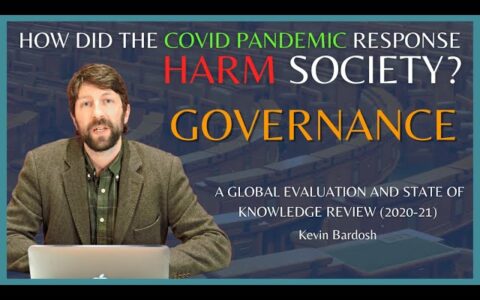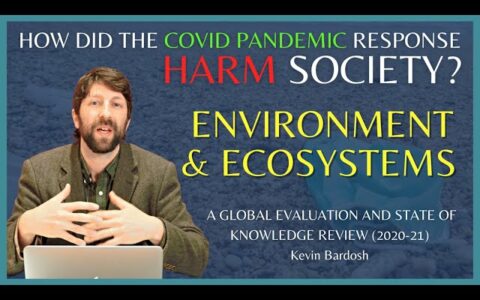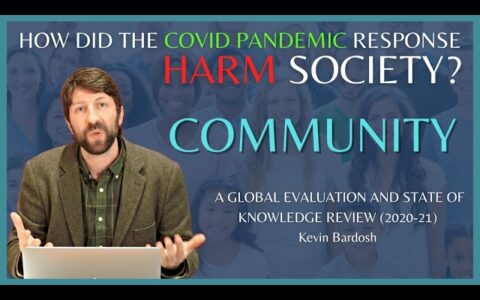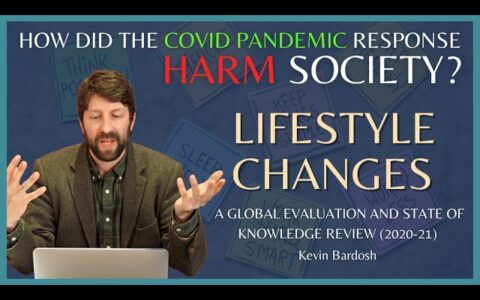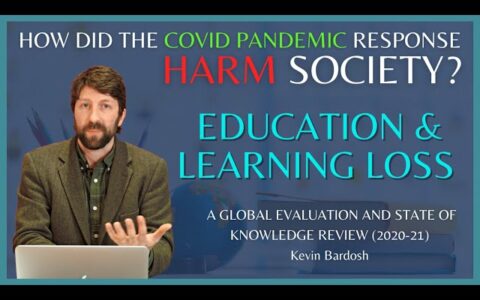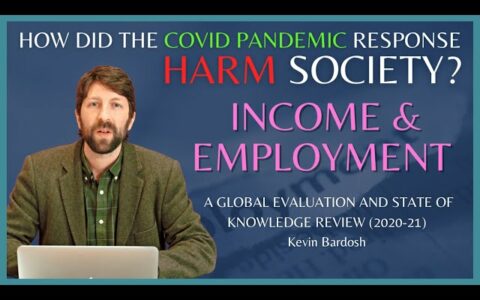Early in the Covid pandemic concerns were raised that lockdown and other non-pharmaceutical interventions would cause significant societal harm. But what does current research tell us about these harms? This video series comprehensively evaluates the current state of knowledge on these negative social impacts. In 10 episodes, we will explore impacts on health, economy, income, food security, education, lifestyle, intimate relationships, community, environment and governance. This analysis is the most comprehensive global evaluation available to date, based on over 600 academic publications.
The analysis shows that the collateral damage of the pandemic response was substantial, wide-ranging and will leave behind a legacy of harm for hundreds of millions of people in the years ahead. Many original predictions are broadly supported by the cumulative research data including: a rise in non-Covid excess mortality, mental health deterioration, child abuse and domestic violence, widening global inequality, food insecurity, unhealthy lifestyle behaviors, increased loneliness, social polarization and democratic backsliding. Young people, individuals and countries with lower socioeconomic status, women and those with pre-existing vulnerabilities were hit hardest.
Evaluating the impact of government policies during the crisis must incorporate a more rigorous consideration of their multifaceted social impacts. It is likely that many Covid policies caused more harm than benefit, although further research is needed to explore policy trade-offs especially at a country-level. Planning and response for future global health emergencies should integrate a wider range of expertise to account for and mitigate societal harms associated with government intervention.
Watch more episodes by clicking here

About the Author

Kevin Bardosh is the Director of Collateral Global, a UK-based charity dedicated to researching the global impacts of Covid-19 policy responses and helping the world better balance societal trade-offs during future health emergencies. He has worked in more than 20 countries on infectious disease control programs (including Ebola and Zika), authored more than 50 peer-reviewed publications and edited two books. He is currently an Affiliate Assistant Professor in the School of Public Health, University of Washington USA and an Honorary Lecturer at the Edinburgh Medical School, University of Edinburgh UK.
Follow Kevin Bardosh on X (formerly Twitter) @KevinBardosh
Follow Collateral Global on Twitter @collateralglbl

